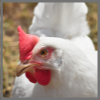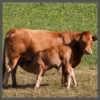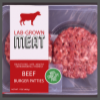-

Jul
21
Interpretive Summary: Constant light exposure in early life induces m6A-mediated inhibition of IGF gene family in the chicken

Aberrant light exposure (such as light at night and super-intensity light) induces sleep disturbances and mood disorders, as well as major depressive disorder. In poultry, photoperiod is an important factor affecting the growth and behavior of broiler chickens.
Read more
-

Jul
14
Interpretive Summary: Effects of particle size and phytase supplementation on apparent and standardized total tract digestibility of phosphorus in hybrid rye fed to growing pigs
.png?sfvrsn=919052d1_0)
Cereal grains such as corn, wheat, and barley are widely used as an energy source in swine diets. However, due to their recent soaring prices, it is necessary to use alternative feedstuffs for swine. New commercial hybrid rye with improved ergot resistance and higher yield has been developed.
Read more
-

Jul
14
Interpretive Summary: Effects of supplemental myo-inositol on growth performance and apparent total tract digestibility of weanling piglets fed reduced protein high-phytate diets and intestinal epithelial cell proliferation and function
.png?sfvrsn=689752d1_0)
After weaning, piglets undergo various kinds of stress that limit feed intake and nutrient digestibility. Much of the effects are strongest at the still-developing gastrointestinal tract where active feed digestion and nutrient uptake takes place.
Read more
-

Jul
14
Interpretive Summary: Effects of dietary energy density and supplemental rumen undegradable protein on intake, viscera, and carcass composition of lambs recovering from nutritional restriction

Animal performance is determined by the combined effects of both prior and current nutrition. The present study used a 2 × 3 × 4 factorial to examine the effects of prior feeding level (HI or LO) on subsequent ad-libitum intake of diets varying in energy density (7.8, 9.2, 10.7 MJ/kg DM) and level of supplemental rumen undegradable protein (RUP; 0, 30, 60, and 90g/d).
Read more
-

Jul
14
Interpretive Summary: Form of dietary selenium affects mRNA encoding cholesterol biosynthesis and immune response elements in the early luteal phase bovine corpus luteum

In regions with soils deficient in selenium (Se), producers should supplement this trace mineral to the diet of forage-grazing cattle. We previously reported that circulating concentrations of progesterone (P4) are affected by the form of Se supplemented to cows.
Read more
-

Jul
14
Interpretive Summary: Preovulatory follicular fluid and serum metabolome profiles in lactating beef cows with thin, moderate, and obese body condition

Extremes in body condition affect fertility and pregnancy outcomes in beef cows. Much research has been done in women and dairy cows to evaluate body condition’s effect on oocyte and embryo quality, pregnancy rates, and pregnancy outcomes.
Read more
-

Jul
14
Interpretive Summary: Insights from two independent transcriptomic studies of the bovine corpus luteum during pregnancy

Reproductive efficiency is necessary for the financial and environmental sustainability of cattle production. A critical component of this efficiency is the maintenance of pregnancy. The corpus luteum (CL) is a transient ovarian endocrine gland that produces progesterone—the hormone that maintains pregnancy in all mammals.
Read more
-

Jul
14
Interpretive Summary: Ruminant conceptus-maternal interactions: interferon-tau and beyond
.png?sfvrsn=a09752d1_0)
Early pregnancy losses are common in cattle. This review describes how critical the interplay between the developing conceptus (embryo and extraembryonic membranes) and endometrium is to maintaining pregnancies in cattle and other ruminants.
Read more
-

Jul
14
Interpretive Summary: History, insights, and future perspectives on studies into luteal function in cattle

The corpus luteum (CL) forms on the ovary from the cellular remnants of the follicle following ovulation. The function of the CL is to produce progesterone that is required for successful pregnancy.
Read more
-

Jun
30
Senate Ag Committee Passes the Cattle Price Discovery and Transparency Act
.png?sfvrsn=829f52d1_0)
The United States Senate Agricultural Committee has passed the Cattle Price Discovery and Transparency Act (S. 4030), a bill that would establish pricing mechanisms for live animal purchases.
Read more
-

Jun
30
Study finds plant-based protein not as nutritious as real meat

A new study by researchers at Ohio State University found that human cells currently do not absorb the same level of nutrients from plant-based protein as they do from meat from animals. While plant-based proteins have risen in popularity, this study shines a light on how the body reacts differently when compared to meat.
Read more
-

Jun
30
Call for nominations for the 2025 Dietary Guidelines Advisory Committee

The United States Department of Agriculture (USDA) and The United States Department of Health and Human Services (HHS) are calling for nominations for the 2025-2030 Dietary Guidelines Advisory Committee (DGAC). ASAS President-Elect Teresa Davis was a 2020-2025 member of the DGAC.
Read more
-

Jun
30
USDA unveils the Food System Transformation framework

The United States Department of Agriculture (USDA) has announced the details of the Food System Transformation framework. The framework was designed to transform the food system to benefit consumers, producers, and rural communities by providing more options, increasing access, and creating markets for small and mid-size producers.
Read more
-

Jun
30
Supreme Court filings for California’s Proposition 12 underway

The National Pork Producer’s Council (NPPC) and the American Farm Bureau Federation (AFBF) recently filed the initial brief with the United States Supreme Court in the case against California’s Proposition 12 (Prop 12). The Proposition bans the sale of pork not produced according to the state’s production standards.
Read more
-

Jun
30
Operation Fly Formula created to help US families

Aimed to target the infant formula shortage, President Joe Biden has announced Operation Fly Formula. Under Operation Fly Formula, the United States Department of Agriculture (USDA) and the Department of Health and Human Services (HHS) are authorized to use Department of Defense (DOD)-contracted commercial aircraft to pick up overseas infant formula that meets U.S. health and safety standards, so it can get to store shelves faster.
Read more
-

Jun
30
New report finds the demand for meat outweighs meat avoidance

Researchers from Kansas State University and Purdue University have released the report Meat demand outdoes meat avoidance. The report found that even with the increase in plant-based fake meat products, Americans are still consuming meat.
Read more
-

Jun
30
Kansas’ fake meat law to go into effect July 1st

A new law has been signed by the Governor of the state of Kansas to require producers of fake meat products that use meat terms to include a disclaimer indicating the product does not contain meat on the label in prominent and conspicuous font size in close proximity to the meat term.
Read more
-

Jun
30
Chavonda Jacobs Young confirmed as USDA REE Undersecretary

Earlier this month, the United States Senate confirmed Dr. Chavonda Jacobs-Young to be the United States Department of Agriculture (USDA) undersecretary of agriculture for Research, Education, and Economics (REE).
Read more
-

Jun
30
Biden Administration proposes changes to the Packers and Stockyards Act

The United States Department of Agriculture’s (USDA) Secretary Tom Vilsack announced additional support, resources, and rulings to strengthen the American food supply chain, promote fair and competitive agricultural markets, prevent abuse of farmers by poultry processors, and make prices fairer for farmers and American consumers.
Read more
-

Jun
30
Americans are changing their eating habits as inflation soars

As inflation soars, many Americans are changing the ways they shop and consume food. Currently, inflation is the highest it has been in over 40 years. Food-at-home prices have increased 11.9%, over the past year, up almost a point from May 2022, according to the United States Bureau of Labor Statistics.
Read more
 JulInterpretive Summary: Constant light exposure in early life induces m6A-mediated inhibition of IGF gene family in the chicken
JulInterpretive Summary: Constant light exposure in early life induces m6A-mediated inhibition of IGF gene family in the chicken Aberrant light exposure (such as light at night and super-intensity light) induces sleep disturbances and mood disorders, as well as major depressive disorder. In poultry, photoperiod is an important factor affecting the growth and behavior of broiler chickens.
Aberrant light exposure (such as light at night and super-intensity light) induces sleep disturbances and mood disorders, as well as major depressive disorder. In poultry, photoperiod is an important factor affecting the growth and behavior of broiler chickens. JulInterpretive Summary: Effects of particle size and phytase supplementation on apparent and standardized total tract digestibility of phosphorus in hybrid rye fed to growing pigs
JulInterpretive Summary: Effects of particle size and phytase supplementation on apparent and standardized total tract digestibility of phosphorus in hybrid rye fed to growing pigs.png?sfvrsn=919052d1_0) Cereal grains such as corn, wheat, and barley are widely used as an energy source in swine diets. However, due to their recent soaring prices, it is necessary to use alternative feedstuffs for swine. New commercial hybrid rye with improved ergot resistance and higher yield has been developed.
Cereal grains such as corn, wheat, and barley are widely used as an energy source in swine diets. However, due to their recent soaring prices, it is necessary to use alternative feedstuffs for swine. New commercial hybrid rye with improved ergot resistance and higher yield has been developed. JulInterpretive Summary: Effects of supplemental myo-inositol on growth performance and apparent total tract digestibility of weanling piglets fed reduced protein high-phytate diets and intestinal epithelial cell proliferation and function
JulInterpretive Summary: Effects of supplemental myo-inositol on growth performance and apparent total tract digestibility of weanling piglets fed reduced protein high-phytate diets and intestinal epithelial cell proliferation and function.png?sfvrsn=689752d1_0) After weaning, piglets undergo various kinds of stress that limit feed intake and nutrient digestibility. Much of the effects are strongest at the still-developing gastrointestinal tract where active feed digestion and nutrient uptake takes place.
After weaning, piglets undergo various kinds of stress that limit feed intake and nutrient digestibility. Much of the effects are strongest at the still-developing gastrointestinal tract where active feed digestion and nutrient uptake takes place. JulInterpretive Summary: Effects of dietary energy density and supplemental rumen undegradable protein on intake, viscera, and carcass composition of lambs recovering from nutritional restriction
JulInterpretive Summary: Effects of dietary energy density and supplemental rumen undegradable protein on intake, viscera, and carcass composition of lambs recovering from nutritional restriction Animal performance is determined by the combined effects of both prior and current nutrition. The present study used a 2 × 3 × 4 factorial to examine the effects of prior feeding level (HI or LO) on subsequent ad-libitum intake of diets varying in energy density (7.8, 9.2, 10.7 MJ/kg DM) and level of supplemental rumen undegradable protein (RUP; 0, 30, 60, and 90g/d).
Animal performance is determined by the combined effects of both prior and current nutrition. The present study used a 2 × 3 × 4 factorial to examine the effects of prior feeding level (HI or LO) on subsequent ad-libitum intake of diets varying in energy density (7.8, 9.2, 10.7 MJ/kg DM) and level of supplemental rumen undegradable protein (RUP; 0, 30, 60, and 90g/d). JulInterpretive Summary: Form of dietary selenium affects mRNA encoding cholesterol biosynthesis and immune response elements in the early luteal phase bovine corpus luteum
JulInterpretive Summary: Form of dietary selenium affects mRNA encoding cholesterol biosynthesis and immune response elements in the early luteal phase bovine corpus luteum In regions with soils deficient in selenium (Se), producers should supplement this trace mineral to the diet of forage-grazing cattle. We previously reported that circulating concentrations of progesterone (P4) are affected by the form of Se supplemented to cows.
In regions with soils deficient in selenium (Se), producers should supplement this trace mineral to the diet of forage-grazing cattle. We previously reported that circulating concentrations of progesterone (P4) are affected by the form of Se supplemented to cows. JulInterpretive Summary: Preovulatory follicular fluid and serum metabolome profiles in lactating beef cows with thin, moderate, and obese body condition
JulInterpretive Summary: Preovulatory follicular fluid and serum metabolome profiles in lactating beef cows with thin, moderate, and obese body condition Extremes in body condition affect fertility and pregnancy outcomes in beef cows. Much research has been done in women and dairy cows to evaluate body condition’s effect on oocyte and embryo quality, pregnancy rates, and pregnancy outcomes.
Extremes in body condition affect fertility and pregnancy outcomes in beef cows. Much research has been done in women and dairy cows to evaluate body condition’s effect on oocyte and embryo quality, pregnancy rates, and pregnancy outcomes. JulInterpretive Summary: Insights from two independent transcriptomic studies of the bovine corpus luteum during pregnancy
JulInterpretive Summary: Insights from two independent transcriptomic studies of the bovine corpus luteum during pregnancy Reproductive efficiency is necessary for the financial and environmental sustainability of cattle production. A critical component of this efficiency is the maintenance of pregnancy. The corpus luteum (CL) is a transient ovarian endocrine gland that produces progesterone—the hormone that maintains pregnancy in all mammals.
Reproductive efficiency is necessary for the financial and environmental sustainability of cattle production. A critical component of this efficiency is the maintenance of pregnancy. The corpus luteum (CL) is a transient ovarian endocrine gland that produces progesterone—the hormone that maintains pregnancy in all mammals. JulInterpretive Summary: Ruminant conceptus-maternal interactions: interferon-tau and beyond
JulInterpretive Summary: Ruminant conceptus-maternal interactions: interferon-tau and beyond.png?sfvrsn=a09752d1_0) Early pregnancy losses are common in cattle. This review describes how critical the interplay between the developing conceptus (embryo and extraembryonic membranes) and endometrium is to maintaining pregnancies in cattle and other ruminants.
Early pregnancy losses are common in cattle. This review describes how critical the interplay between the developing conceptus (embryo and extraembryonic membranes) and endometrium is to maintaining pregnancies in cattle and other ruminants. JulInterpretive Summary: History, insights, and future perspectives on studies into luteal function in cattle
JulInterpretive Summary: History, insights, and future perspectives on studies into luteal function in cattle The corpus luteum (CL) forms on the ovary from the cellular remnants of the follicle following ovulation. The function of the CL is to produce progesterone that is required for successful pregnancy.
The corpus luteum (CL) forms on the ovary from the cellular remnants of the follicle following ovulation. The function of the CL is to produce progesterone that is required for successful pregnancy. JunSenate Ag Committee Passes the Cattle Price Discovery and Transparency Act
JunSenate Ag Committee Passes the Cattle Price Discovery and Transparency Act.png?sfvrsn=829f52d1_0) The United States Senate Agricultural Committee has passed the Cattle Price Discovery and Transparency Act (S. 4030), a bill that would establish pricing mechanisms for live animal purchases.
The United States Senate Agricultural Committee has passed the Cattle Price Discovery and Transparency Act (S. 4030), a bill that would establish pricing mechanisms for live animal purchases. JunStudy finds plant-based protein not as nutritious as real meat
JunStudy finds plant-based protein not as nutritious as real meat A new study by researchers at Ohio State University found that human cells currently do not absorb the same level of nutrients from plant-based protein as they do from meat from animals. While plant-based proteins have risen in popularity, this study shines a light on how the body reacts differently when compared to meat.
A new study by researchers at Ohio State University found that human cells currently do not absorb the same level of nutrients from plant-based protein as they do from meat from animals. While plant-based proteins have risen in popularity, this study shines a light on how the body reacts differently when compared to meat. JunCall for nominations for the 2025 Dietary Guidelines Advisory Committee
JunCall for nominations for the 2025 Dietary Guidelines Advisory Committee The United States Department of Agriculture (USDA) and The United States Department of Health and Human Services (HHS) are calling for nominations for the 2025-2030 Dietary Guidelines Advisory Committee (DGAC). ASAS President-Elect Teresa Davis was a 2020-2025 member of the DGAC.
The United States Department of Agriculture (USDA) and The United States Department of Health and Human Services (HHS) are calling for nominations for the 2025-2030 Dietary Guidelines Advisory Committee (DGAC). ASAS President-Elect Teresa Davis was a 2020-2025 member of the DGAC. JunUSDA unveils the Food System Transformation framework
JunUSDA unveils the Food System Transformation framework The United States Department of Agriculture (USDA) has announced the details of the Food System Transformation framework. The framework was designed to transform the food system to benefit consumers, producers, and rural communities by providing more options, increasing access, and creating markets for small and mid-size producers.
The United States Department of Agriculture (USDA) has announced the details of the Food System Transformation framework. The framework was designed to transform the food system to benefit consumers, producers, and rural communities by providing more options, increasing access, and creating markets for small and mid-size producers. JunSupreme Court filings for California’s Proposition 12 underway
JunSupreme Court filings for California’s Proposition 12 underway The National Pork Producer’s Council (NPPC) and the American Farm Bureau Federation (AFBF) recently filed the initial brief with the United States Supreme Court in the case against California’s Proposition 12 (Prop 12). The Proposition bans the sale of pork not produced according to the state’s production standards.
The National Pork Producer’s Council (NPPC) and the American Farm Bureau Federation (AFBF) recently filed the initial brief with the United States Supreme Court in the case against California’s Proposition 12 (Prop 12). The Proposition bans the sale of pork not produced according to the state’s production standards. JunOperation Fly Formula created to help US families
JunOperation Fly Formula created to help US families Aimed to target the infant formula shortage, President Joe Biden has announced Operation Fly Formula. Under Operation Fly Formula, the United States Department of Agriculture (USDA) and the Department of Health and Human Services (HHS) are authorized to use Department of Defense (DOD)-contracted commercial aircraft to pick up overseas infant formula that meets U.S. health and safety standards, so it can get to store shelves faster.
Aimed to target the infant formula shortage, President Joe Biden has announced Operation Fly Formula. Under Operation Fly Formula, the United States Department of Agriculture (USDA) and the Department of Health and Human Services (HHS) are authorized to use Department of Defense (DOD)-contracted commercial aircraft to pick up overseas infant formula that meets U.S. health and safety standards, so it can get to store shelves faster. JunNew report finds the demand for meat outweighs meat avoidance
JunNew report finds the demand for meat outweighs meat avoidance Researchers from Kansas State University and Purdue University have released the report Meat demand outdoes meat avoidance. The report found that even with the increase in plant-based fake meat products, Americans are still consuming meat.
Researchers from Kansas State University and Purdue University have released the report Meat demand outdoes meat avoidance. The report found that even with the increase in plant-based fake meat products, Americans are still consuming meat. JunKansas’ fake meat law to go into effect July 1st
JunKansas’ fake meat law to go into effect July 1st A new law has been signed by the Governor of the state of Kansas to require producers of fake meat products that use meat terms to include a disclaimer indicating the product does not contain meat on the label in prominent and conspicuous font size in close proximity to the meat term.
A new law has been signed by the Governor of the state of Kansas to require producers of fake meat products that use meat terms to include a disclaimer indicating the product does not contain meat on the label in prominent and conspicuous font size in close proximity to the meat term. JunChavonda Jacobs Young confirmed as USDA REE Undersecretary
JunChavonda Jacobs Young confirmed as USDA REE Undersecretary Earlier this month, the United States Senate confirmed Dr. Chavonda Jacobs-Young to be the United States Department of Agriculture (USDA) undersecretary of agriculture for Research, Education, and Economics (REE).
Earlier this month, the United States Senate confirmed Dr. Chavonda Jacobs-Young to be the United States Department of Agriculture (USDA) undersecretary of agriculture for Research, Education, and Economics (REE). JunBiden Administration proposes changes to the Packers and Stockyards Act
JunBiden Administration proposes changes to the Packers and Stockyards Act The United States Department of Agriculture’s (USDA) Secretary Tom Vilsack announced additional support, resources, and rulings to strengthen the American food supply chain, promote fair and competitive agricultural markets, prevent abuse of farmers by poultry processors, and make prices fairer for farmers and American consumers.
The United States Department of Agriculture’s (USDA) Secretary Tom Vilsack announced additional support, resources, and rulings to strengthen the American food supply chain, promote fair and competitive agricultural markets, prevent abuse of farmers by poultry processors, and make prices fairer for farmers and American consumers. JunAmericans are changing their eating habits as inflation soars
JunAmericans are changing their eating habits as inflation soars As inflation soars, many Americans are changing the ways they shop and consume food. Currently, inflation is the highest it has been in over 40 years. Food-at-home prices have increased 11.9%, over the past year, up almost a point from May 2022, according to the United States Bureau of Labor Statistics.
As inflation soars, many Americans are changing the ways they shop and consume food. Currently, inflation is the highest it has been in over 40 years. Food-at-home prices have increased 11.9%, over the past year, up almost a point from May 2022, according to the United States Bureau of Labor Statistics.



